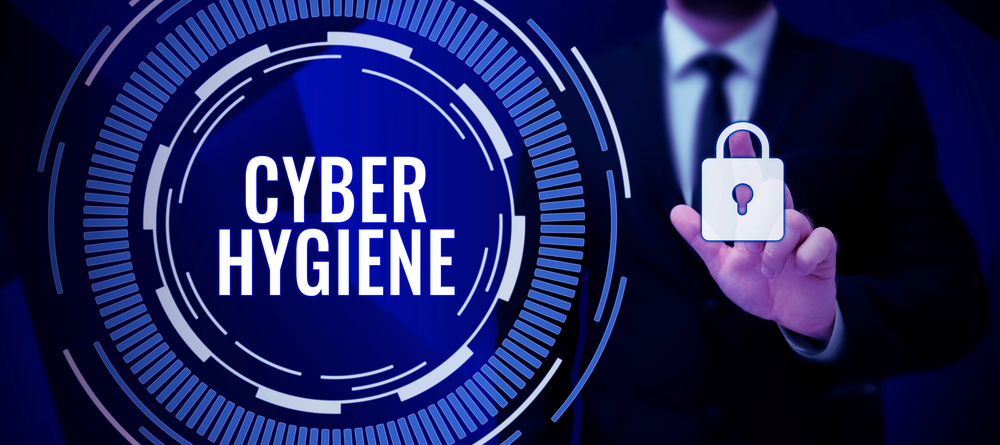In the modern world where the internet has become a fundamental part of daily life, ensuring your online safety has never been more critical. As our lives become increasingly digitized, the threats that lurk in the online world continue to grow and evolve, making the concept of cybersecurity hygiene all the more pertinent. This blog post intends to delve deep into the concept of Cybersecurity Hygiene and discusses in detail three foundational daily practices that, when implemented correctly, can significantly bolster your online safety.

Password Management
The cornerstone of online safety is robust password management. Passwords are the first line of defense against unauthorized access to personal information, so it’s essential to make them as strong and unique as possible for all your online accounts.
Avoid using easily guessable or personal information like your birthday, name, or the word ‘password’. Instead, opt for a combination of uppercase and lowercase letters, numbers, and symbols to create a password that is considerably harder to crack. Regularly changing your passwords can also prevent potential breaches, as it reduces the window of opportunity for cybercriminals.
Consider using a password manager, a digital tool designed specifically to generate and store complex passwords securely. These tools can also help maintain diversity in your passwords across different platforms, further enhancing your online security.
Multi-Factor Authentication
Another significant practice is the use of multi-factor authentication (MFA). MFA is a method that further secures your accounts by requiring multiple forms of verification to prove your identity. This could include something you know (password), something you have (a phone to receive a code), or something you are (biometric data). By enabling MFA, you add an additional layer of security that can effectively deter cybercriminals.
Regular Updates
The second practice pivotal to maintaining online safety is the regular updating of your system and software. Many might perceive updates as mere additions of new features, but they serve a far more critical purpose. Updates often contain fixes to security vulnerabilities that, if left unaddressed, could be exploited by cybercriminals.
Ensure that your operating system, applications, and antivirus software are always up-to-date. Enabling automatic updates wherever possible ensures that you don’t miss out on any critical security patches and helps maintain a strong defense against potential cyber threats.
Secure Browsing: A Key to Online Safety
Secure browsing is another fundamental practice that plays a crucial role in maintaining online safety. It’s not just about accessing information online; it’s also about ensuring that your activities and data are protected as you navigate through the digital realm.
One of the primary ways to ensure secure browsing is by visiting websites that use secure protocols. Look for the ‘https://’ prefix in the website’s URL – this signifies that the website is using Secure Sockets Layer (SSL) or Transport Layer Security (TLS), which encrypt your data and protect it from being intercepted by malicious actors.
In addition to this, consider using a Virtual Private Network (VPN). A VPN is a service that allows you to connect to the internet via an encrypted tunnel to ensure your online privacy and protect your sensitive data. VPNs can mask your online identity by changing your IP address, making it much harder for third parties to track your activities online.
Phishing Awareness
The final key practice is awareness and vigilance against phishing attempts. Phishing is a prevalent form of cybercrime where scammers trick you into revealing sensitive information such as your password or credit card number. This information can then be used for fraudulent activities.
Always exercise skepticism towards unsolicited communication asking for such data, even if it appears to come from a trusted source. Be vigilant and learn to identify suspicious emails and websites. It’s a good rule of thumb to never click on links or download attachments from unknown or unverified sources, as this is a common method used for phishing attacks.
Regular Scrutiny of Privacy Settings
Another essential daily practice is the regular scrutiny and adjustment of your privacy settings on all digital platforms. Many applications and websites have default settings that might share more information than you realize. Regularly reviewing and updating these settings can help ensure that you’re sharing only what you’re comfortable with, further enhancing your online privacy and security.
Conclusion
In conclusion, practicing good cybersecurity hygiene is a daily commitment rather than a one-time task. By consistently applying robust password management practices, keeping your system and software regularly updated, and maintaining a heightened awareness of phishing attempts, you can greatly enhance your online safety. In the vast, often unpredictable world of the internet, your security largely lies in your hands. Remember, a proactive approach to cybersecurity can save you from many potential cyber threats.

